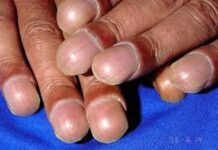Last month, we discussed the importance of getting in to see your healthcare provider for routine checkups and care. Taking the time for preventive care is a critical step in avoiding a serious event or condition that causes irreversible damage. From a healthcare perspective, it is always better to prevent a disease than to treat one. The US Preventive Services Task Force (USPSTF) provides evidence-based clinical guidelines for prevention of all types of diseases and conditions based on age, gender or risky behaviors (e.g., tobacco, alcohol, sedentary life to name a few). In this article, I will summarize some of the recommendations for routine screenings that you can discuss with your healthcare provider. For more detailed information, readers can also review USPSTF recommendations online at uspreventiveservicestaskforce.org/uspstf/recommendation-topics/information-for-consumers.
20s: Aahhh, life is good in your 20s, right? No worries, you’re still in your prime! Hit the beach without sunscreen. Eat fast food. Exercise…who needs that? Stay up all night…you can handle it! And the truth is, you probably can for now, but the things you do (or don’t do) and habits you form (or not) in your 20s will catch up with you later in life. Recommendations for this decade include screening for sexually transmitted diseases (HIV, hepatitis B, chlamydia, gonorrhea, and syphilis). Women who are considering becoming pregnant (or not preventing pregnancy with a reliable and consistently used means of contraception) should be taking folic acid to prevent birth defects. Cessation of alcohol, drugs and tobacco should be discussed as well as the long-term consequences of continued use of these substances. And, because we live in the Sunshine State – skin cancer prevention cannot be overlooked! Wear. Sunscreen. Daily.
30s: Raising kids, working, managing a household…when did life get so complicated and busy?! We seem to be taking care of everyone else except ourselves. USPSTF recommends that women aged 21-65 should have cervical cancer screening (screening intervals are based on each woman’s personal and family history). Everyone should have screening for high blood pressure starting in their 20s, but most certainly by the third decade. During this time of stress and frequently anxiety, depression isn’t uncommon, so screening for depression should also take place. And by now, we should be thinking about cardiovascular risk factors (smoking, family history, cholesterol, blood pressure, obesity) and taking steps to mitigate those risks, such as routine exercise and a healthy diet.
40s: Is 40 really the new 30? It can be, if you are taking the steps to keep yourself fit and healthy. Along with the other recommendations mentioned above, which we should continue to do throughout our 40s, USPSTF also recommends that people in their 40s have screening for Type 2 Diabetes. For women, routine mammograms should be undertaken (discuss with your provider the appropriate time intervals for this). Additionally, people in their 40s should have routine checks of their cholesterol, and discuss the possibility of cholesterol medication (e.g. “statin”) if they have certain risk factors. In our 40s, we should continue to exercise to maintain a healthy weight, cholesterol level and blood pressure. Weight-bearing exercise can also help us maintain bone density, which helps to prevent osteoporosis in later years.
Stay posted…next month, I will delve into the recommendations for the next four decades of life (yes, I said four). With regular care and maintenance, we can live (not just survive), well into our 80s and remain productive, healthy, and happy.
Dr. Stacy Kehl is a Family Nurse Practitioner with Elements Primary Care, 8406 Panama City Beach Pkwy., Suite K, Panama City Beach. Call (850) 708-1623 or visit ElementPCP.com.


















































